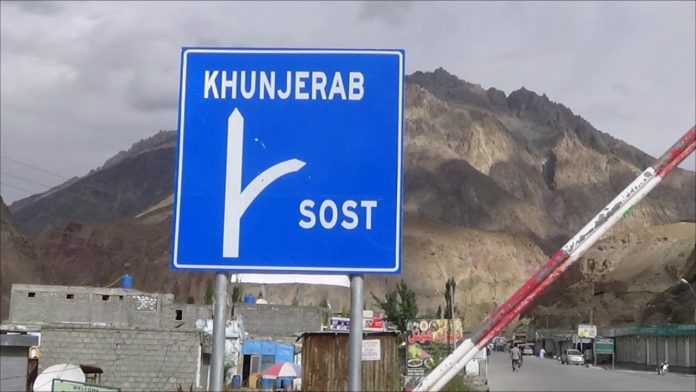PESHAWAR: Like other parts of the country, the importers in Khyber Pakhtunkhwa have been facing billions of rupees worth losses due to the coronavirus outbreak in China and the suspension of imports owing to the closure of Pak-China border.
Traders believe there will be a shortage of essential products in the markets and prices will increase, if the government has not taken immediate steps.
Among others, the motorcycle industry is severally affected as the industry people are unable to import parts from China. Besides, the prices of electronic goods have also surged in local market because of no imports from China.
The provincial government’s revenue collection has also affected because of shortage of Chinese imported goods in local markets. At present, billions of rupees are usually collected under customs duty, regular duty, surcharges, 17 per cent sales tax on Chinese imports in Pakistan.
Majority of traders from across the country as well as KP import textiles, motorcycle parts, mobile phones, plastics, hosiery, garments, crockery, cosmetics, carpets, steel, plastic products, electronic goods, mobile phones parts, vehicles spare-parts, gadgets, children’s toys as well as large quantities of goods, including vegetables, fruits and dry fruits.
Imports from China are routed to KP within 40 to 45 days after placing orders. However, the supply of goods has now halted owing to the closure of the Pak-China border. In KP, major Chinese goods markets are in Peshawar, Swat and Mardan, which are now giving a deserted look.
Shahzad Akbar of Swat, who imports cloth from China, said China imports had already been affected by an increase in the government taxes. He said earlier, a cloth container from China used to be cleared through agent at the Karachi Port in Rs1.8 to Rs2.2 million. However, the present government had raised cost per container up to Rs10.10 million, forcing them to import goods through Sost Border instead of seaport., he added.
Akbar said at present, bilateral trade volume with China had increased from $4 billion to $15.6 billion dollars, but if the government imposed more taxes, there was a possibility of reduction in mutual trade.
Akbar said Rs220 to Rs250 per kilogramme cloth was being charged at Sost Border, whereas Rs450 to Rs500 per kg cloth was being charged at seaport, which had also increased its price in the market in the country.
Due to an increasing cost of cloth production in Pakistan, the traders preferred to import readymade cloth from China, he added.
“If Pakistani imports from China aren’t cleared within a month, about 90pc of goods will not be available in Pakistani markets that are being dominated by Chinese products,” Akbar feared.
Another importer Haji Mian Khan, was of the view that not only KP but the importers across the country were facing troubles due to the current situation as traders and their investments had stuck in China due to the coronavirus.
Khan said the government was also facing a decrease in revenue, adding local industries were not producing the products imported from China due to expensive electricity and raw materials.
Pakistan China Joint Chamber of Commerce and Industry’s Secretary General Salahuddin said Pakistan had been assured that closed roads and factories were gradually opening in China and that the supply of goods would be restored to end the crisis.
Abidullah Khan, who is former vice president of the Sarhad Chamber of Commerce and Industry, said the situation created by the coronavirus was hitting the motorcycle industry hard, as out of 400, around 50 motorcycle parts imported from China couldn’t not be shipped over the past several weeks.
Sharafat Ali Mubarak, another KP entrepreneur, appealed to the federal government to intervene into the matter and save traders from huge losses due to the border’s closure.
He said 80pc of Pakistani imports were from China and due to the shortage of supply, there was an imbalance in demand and supply in the market besides fear of price hike.
The KP traders associated with the Chinese imports were of the view that the government would have to develop better policy to regulate the local industry.
The suggested tax exemptions, reduction in prices of gas and electricity, and reduction of taxes on imports of raw materials so that the local industries could start production to fulfil the domestic requirements.




